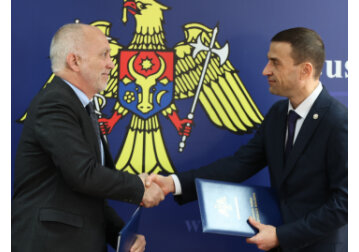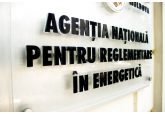
The Customs Service will establish a Risk Analysis and Intelligence Center (CARI) with support from a USAID program.
A memorandum of understanding to help improve customs controls based on risk analysis and the establishment of the CARI center was signed on Tuesday by Customs Service (CS) Director Igor Talmazan and USAID Moldova Institutional and Structural Reforms Activity (MISRA) Director David Anderson. The document outlines commitments to develop a comprehensive CARI concept, including finalizing the regulatory and operational framework, developing risk management processes, digital tools and procuring the necessary hardware and software. According to the CARI concept that was presented at the event, the Center will bring together several divisions of the customs agency - departments and services of customs posts that deal with risk analysis, the video surveillance department, the analytical and information center, and others. The Center will manage existing and develop new CS databases, develop analytical products to improve customs control, manage the process of planning activities at the national, regional and local levels, and ensure inter-institutional and international cooperation. CARI will provide video monitoring at customs posts, centralize and monitor the scanning process, monitor high-risk transit via GPS, and provide support to mobile teams and investigation officers. CARI will also provide risk profiling in the Asycuda, Frontiera, and Aeroport information systems, which will improve risk-based monitoring of export-import operations, mail, and passengers. Currently, the Customs Service applies risk analysis during customs control, which allows for faster execution of all customs procedures, but the circumstances caused by the war in the region require more sophisticated risk assessment methods. The head of the Customs Service, Igor Talmazan, said that the situation in Ukraine led to a 4-fold increase in the transit of goods through the customs border of Moldova. At the same time, exports and imports are now processed through the border with Romania, which implies additional efforts on the part of the CS and increases the risks of illegal import of goods. "In this situation, customs authorities need to utilize advanced risk assessment techniques, promptly and accurately identifying high-risk transactions. Thus, risk management, which will be developed in a centralized unit with several mandates (analysis, monitoring and profiling), will allow the efficient allocation of the necessary resources, directing customs controls to higher risk transport and goods. These actions will strengthen safeguards against illegal activities, protect public health, national security and intellectual property rights," emphasized Igor Talmazan. //27.02.2024 - InfoMarket.







